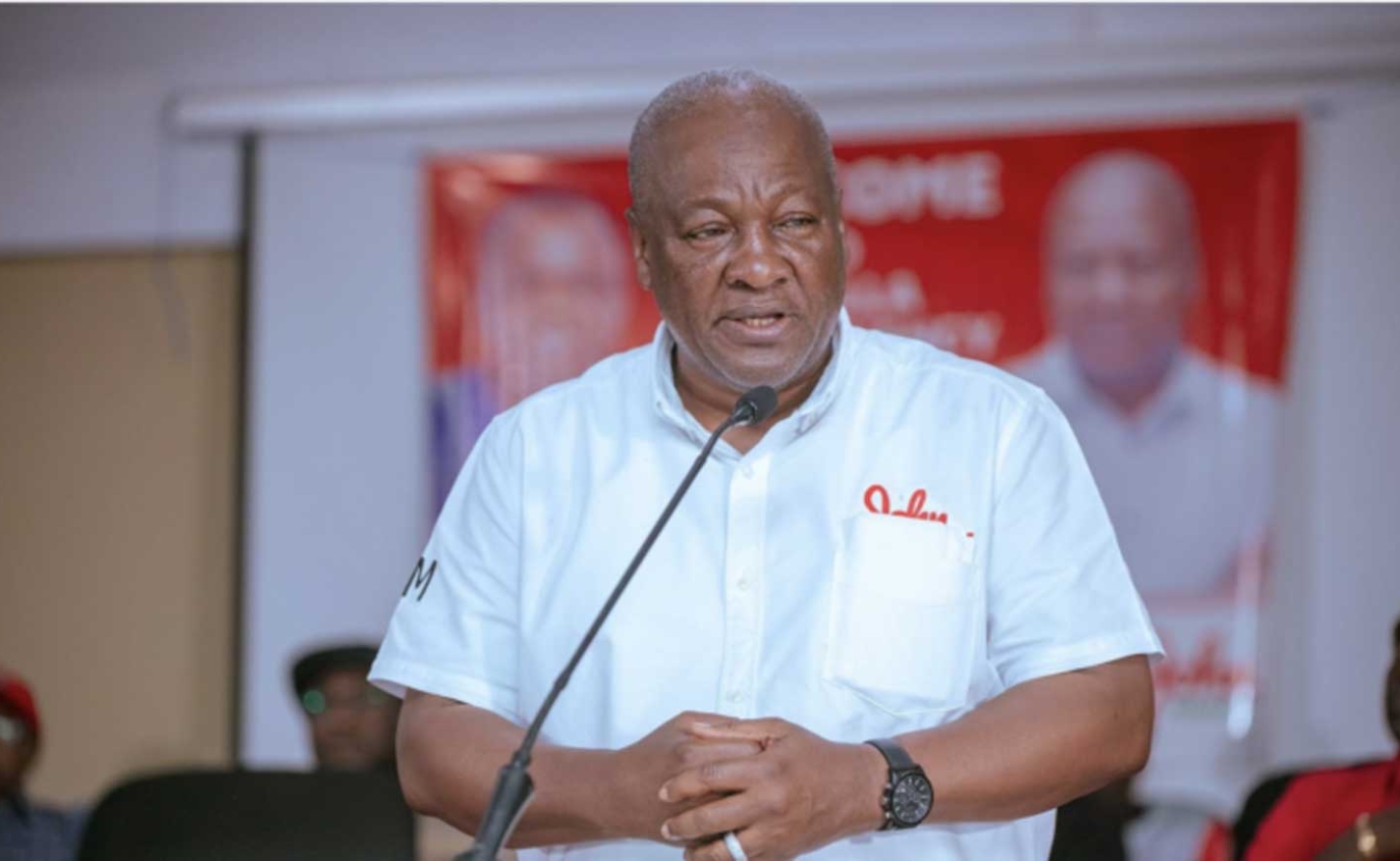AFRICA | Ghana's New Dawn: President Mahama Unveils Ambitious 120-Day Reform Agenda

ACCRA, Ghana, January 7, 2025 - In a sweeping declaration that signals a dramatic shift in Ghana's governance, newly installed President John Mahama has launched an ambitious 120-day transformation agenda, promising to reshape the nation's political and economic landscape through a series of bold reforms and investigations.
The cornerstone of Mahama's "Social Contract" with Ghanaians begins with a pledge to establish what he terms the "leanest and most efficient" government in Ghana's Fourth Republic within his first 90 days. This streamlined administration will be preceded by the nomination of his complete cabinet within a mere fortnight, setting an unprecedented pace for governmental formation.
In a direct response to mounting economic challenges, Mahama has committed to convening a National Economic Dialogue to assess the true state of Ghana's economy and develop a homegrown fiscal consolidation program. This initiative will be coupled with the elimination of what he describes as "draconian taxes," particularly those affecting industrial and agricultural equipment imports.
The new administration's economic vision extends beyond tax reform, with plans to implement a novel 24-hour economy policy and establish an Accelerated Export Development Council (AEDC) to boost the nation's export capabilities. These measures are positioned as part of a broader strategy for economic transformation.
In a move addressing period poverty, his administration will begin distributing free sanitary pads to female students in primary and secondary schools. “
In the education sector, Mahama's agenda marks a significant departure from current policies, headlined by a groundbreaking "No-Academic-Fee" policy for first-year students across public tertiary institutions.
This sweeping reform, encompassing universities, colleges of education, and nursing training institutions, will be preceded by a national consultative conference aimed at building consensus on broader educational improvements.
The president's social agenda extends beyond education, introducing what he calls the "Ghana Medical Care Trust Fund," dubbed "MahamaCares," and establishing free tertiary education for persons with disabilities.
In a move addressing period poverty, his administration will begin distributing free sanitary pads to female students in primary and secondary schools.
Perhaps most striking is Mahama's commitment to financial transparency and anti-corruption measures.
The president has announced plans for wide-ranging forensic audits into several high-profile cases, including the controversial collapse of indigenous Ghanaian banks that reportedly cost GHS25 billion, the US$58 million National Cathedral scandal, and various COVID-19 expenditure irregularities. A new policy will explicitly ban political appointees from purchasing state assets, marking a clear break from past practices.
Women's economic empowerment features prominently in the agenda, with plans to establish a dedicated Women's Development Bank. This initiative will run parallel to three major job creation programs: the 'Adwumawura' Programme, National Apprenticeship Programme, and an ambitious 'One Million Coders Programme.'
“ Women's economic empowerment features prominently in the agenda, with plans to establish a dedicated Women's Development Bank. ”
In a bold pivot toward environmental protection, Mahama's administration has committed to an immediate ban on new mining activities in forest reserves, coupling this with an innovative "Tree for Life" and "Blue Water Initiative." These programs aim to transform areas devastated by illegal mining (galamsey) into what he terms "economic and ecological recovery hubs" - a direct response to one of Ghana's most pressing environmental challenges.
Tourism and cultural preservation also feature prominently in the president's agenda, with the launch of "The Black Star Experience," a comprehensive rebranding initiative designed to position Ghana as a premier tourism destination and cultural hub.
On the security front, Mahama has pledged to address several unresolved issues that have haunted Ghana's recent political landscape.
His administration will reopen investigations into several high-profile cases, including the 2020 election killings, the Ayawaso West Wuogon by-election violence, and the murders of journalist Ahmed Hussein-Suale and activist Silas Wulochamey.
In a significant move to depoliticize security services, he has promised to purge state security agencies of all militia and vigilante elements.
The president has also turned his attention to recent natural disasters, announcing an investigation into what he describes as the "man-made disaster" caused by the VRA's spillage from the Akosombo and Kpong Dams.
“ Mahama will immediately ban all new mining activities in forest reserves. This aims to transform areas destroyed by illegal mining (galamsey) into what he terms "economic and ecological recovery hubs" ”
This crisis, which displaced thousands across the Volta, Eastern, and Greater Accra regions, will see immediate compensation for victims, including those affected in the Oti, Bono East, and Savanna regions.
The 120-day agenda, unprecedented in its scope and ambition, represents what Mahama calls a "Social Contract" with the Ghanaian people.
Political observers note that while the timeline is aggressive, it sets clear benchmarks against which the new administration can be judged. However, questions remain about the feasibility of implementing such wide-ranging reforms within the prescribed timeframe.
"This is either going to be remembered as the most transformative period in Ghana's recent history, or as another instance of political overreach," says Dr. Kwame Mensah, a political economist at the University of Ghana. "The next four months will be crucial in determining which narrative prevails."
-30-
